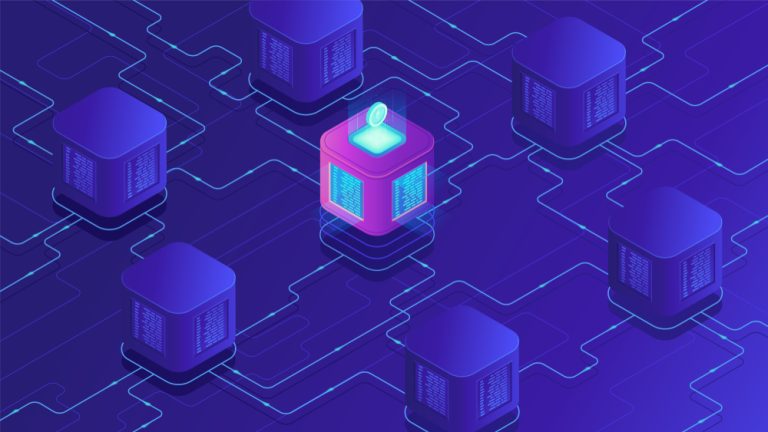Blockchain technology has gained immense popularity in recent years, and its application in mobile app development has opened up new possibilities across various industries. While blockchain is often associated with cryptocurrencies, its potential extends far beyond digital currencies. In this article, we will explore five unique and innovative use cases for blockchain mobile app development that you may not have considered before. Discover how blockchain can transform industries, enhance security, and provide transparency, all through the power of mobile apps.
1. Decentralized Identity Management: Enhancing Security and Privacy
One of the compelling use cases for blockchain mobile app development lies in decentralized identity management. Traditional identity systems often rely on centralized authorities, making them vulnerable to data breaches and identity theft. However, with blockchain integrated into mobile app development, users can maintain control over their digital identities. Blockchain’s decentralized nature and cryptographic encryption enable secure storage and verification of personal information, enhancing security and privacy for users.
2. Supply Chain Traceability: Ensuring Transparency and Trust
Blockchain mobile app development can revolutionize supply chain management by offering end-to-end traceability and ensuring transparency and trust. By leveraging blockchain, each transaction and interaction within the supply chain can be recorded and verified, creating an immutable audit trail. Mobile apps developed with blockchain technology can empower users to scan product QR codes and access detailed information about the product’s journey, ensuring authenticity, ethical sourcing, and fostering trust between businesses and consumers.
3. Micropayments and Content Monetization: Empowering Creators
Blockchain mobile apps can empower creators by facilitating micropayments and enabling content monetization. With the advent of decentralized finance (DeFi) platforms, blockchain has introduced new ways for creators to monetize their work directly. Mobile apps can leverage blockchain to enable micropayments for digital content, such as articles, music, videos, or artwork. This direct-to-creator model eliminates intermediaries, reducing fees and enabling creators to receive fair compensation for their work.
4. Voting and Governance Systems: Ensuring Transparency and Trust
Blockchain technology offers a secure and transparent solution for voting and governance systems. Mobile apps leveraging blockchain can enable secure digital voting, ensuring the integrity of the process and enhancing trust in democratic systems. Blockchain’s immutability and transparency provide an auditable record of each vote, reducing the risk of fraud or manipulation. Moreover, blockchain-based governance systems can streamline decision-making processes in organizations by automating voting and record-keeping.
5. Energy Trading and Grid Management: Optimizing Efficiency
Blockchain mobile apps are transforming the energy sector by facilitating peer-to-peer energy trading and optimizing grid management. With blockchain, individuals can directly trade excess energy generated from renewable sources, fostering a decentralized energy economy. Mobile apps can connect energy producers and consumers, enabling efficient transactions and reducing reliance on centralized utility providers. Additionally, blockchain-based grid management solutions can enhance energy efficiency and promote sustainable practices.
FAQs
1. Can blockchain mobile apps be developed for any industry? Yes, blockchain mobile apps can be developed for various industries, ranging from finance and healthcare to supply chain and entertainment. The key is to identify specific pain points or areas that can benefit from enhanced security, transparency, and decentralization.
2. How secure are blockchain mobile apps? Blockchain mobile apps are designed with robust security measures. The decentralized nature of blockchain technology, coupled with cryptographic encryption, ensures the integrity and immutability of data stored on the blockchain. However, it’s important to note that while the blockchain itself is secure, the security of the mobile app depends on the implementation and adherence to best practices by the development team.
3. Are blockchain mobile apps only for cryptocurrency transactions? No, blockchain mobile apps have evolved beyond cryptocurrency transactions. While cryptocurrencies were the first prominent use case for blockchain technology, mobile apps now leverage blockchain for a wide range of applications, including identity management, supply chain traceability, content monetization, voting systems, and energy trading.
4. How does blockchain ensure transparency in supply chain management? Blockchain provides transparency in supply chain management by recording and verifying every transaction and interaction on the distributed ledger. This creates an immutable and auditable trail of the product’s journey from its origin to the point of sale. Consumers can access this information through mobile apps, ensuring transparency, and verifying the authenticity and ethical sourcing of products.
5. Can blockchain mobile apps be used for both personal and business purposes? Absolutely! Blockchain mobile apps have applications for both personal and business purposes. Individuals can use blockchain mobile apps for secure identity management, content monetization, and even decentralized finance. On the other hand, businesses can leverage blockchain mobile apps for supply chain traceability, transparent governance systems, and optimizing energy trading and grid management.
6. How can blockchain mobile apps revolutionize the energy sector? Blockchain mobile apps are transforming the energy sector by enabling peer-to-peer energy trading and optimizing grid management. Individuals with excess energy from renewable sources can directly trade it with others through the app, promoting a decentralized energy economy. Additionally, blockchain-based grid management solutions help optimize energy distribution, enhance efficiency, and encourage sustainable practices.
Conclusion
Blockchain technology has opened up a world of possibilities for mobile apps, extending beyond cryptocurrencies. The five unique use cases discussed in this article illustrate the transformative power of blockchain in various industries. From decentralized identity management to supply chain traceability, content monetization to voting systems, and energy trading to grid management, blockchain mobile apps are revolutionizing the way we interact with technology.
We can anticipate many more creative use cases to develop as blockchain continues to develop and become more widely used. It’s crucial for businesses and individuals to explore and embrace the potential of blockchain technology to stay ahead in this digital era. By harnessing the power of blockchain mobile apps, we can enhance security, transparency, and efficiency in multiple facets of our lives.

